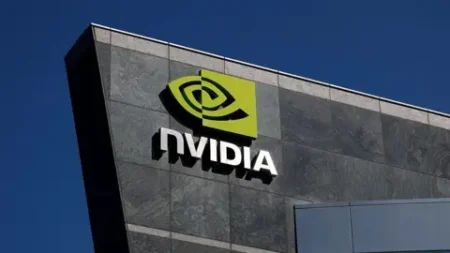In a shocking revelation, the chief executive of the Co-operative Group, Shirine Khoury-Haq, has announced that a significant data breach has affected all 6.5 million members of the retailer. The incident, which occurred in April, has raised serious concerns regarding cyber security across the retail sector. This breach resulted in the unauthorized access of personal data, including names, addresses, and contact information, although it was confirmed that no financial or transaction data was taken. In her first interview since the attack, Khoury-Haq expressed her devastation, not only for the breach itself but also for the impact on her employees, as they worked tirelessly to manage the situation.
During her appearance on BBC Breakfast, Khoury-Haq spoke candidly about the emotional toll the incident has taken on the Co-op’s workforce. She stated, “I’m incredibly sorry for the attack and that it was personal to me because of the impact it had on my colleagues.” These interactions with her IT staff, who faced the crisis head-on, left lasting impressions on her, as they worked desperately to repel the cyber threats. The hackers managed to infiltrate the systems but were ultimately thwarted from deploying more disruptive tactics, such as installing ransomware, thanks to prompt action taken by the Co-op’s IT department.
Despite their success in preventing further damage, Khoury-Haq acknowledged the lingering concerns of their members, stating, “We know a lot of that information is out there anyway, but people will be worried. All members should be concerned.” This acknowledgment emphasizes the growing unease among consumers about how their data is being handled and protected. The Co-op, which operates on a member-based scheme wherein profits are shared with members, has felt a profound responsibility towards the community it serves.
In the wake of the attacks, law enforcement agencies, specifically the National Crime Agency (NCA), apprehended four individuals — a mix of British and Latvian nationals — pending further investigations. These arrests carry charges relating to blackmail, money laundering, and breaches of the Computer Misuse Act, among others. As police investigations continue, the Co-op has not disclosed the estimated financial costs linked to the breach; however, they have indicated that operational recovery efforts are still ongoing.
In what may be viewed as an adaptive response to the heightened threat landscape, the Co-op has announced its collaboration with a cybersecurity recruitment company to better equip itself for future challenges. This initiative, known as “The Hacking Games,” aims to identify and direct young talent towards legitimate careers in cyber security, thus redirecting their skills away from illegal activities. The chief executive of the recruitment company, Fergus Hay, highlighted that providing youth with opportunities often leads them towards positive career paths.
Moreover, the cyber-attacks that targeted the Co-op were part of a broader assault affecting notable retailers such as Marks & Spencer (M&S) and Harrods. Initially, the Co-op had downplayed the impact of the cyber-incident, suggesting minimal disruption to its services. However, as the full extent of the breach became apparent, it was revealed that customer and employee data had been compromised. Not only did this expose a significant vulnerability within the organization, but it also posed questions about the resilience of the wider retail sector against cyber threats.
The ongoing investigations and the Co-op’s efforts to mitigate future risks underscore a growing recognition that cyber security must be a priority for all businesses. As companies continue to face increasing threats, the protection of consumer data has never been more critical. With consumers more informed and concerned than ever before about data privacy, organizations must not only safeguard information but also restore trust in their brand integrity going forward. The journey to recovery will be arduous for the Co-op, but it sets a precedent for how retailers can approach and fortify their defenses against an ever-evolving digital landscape.











